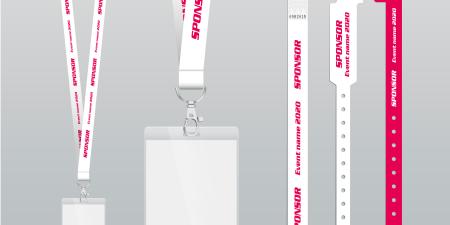On April 18, 2002, the Pharmaceutical Research and Manufacturers of America (PhRMA) adopted a new marketing code to govern the pharmaceutical industry's relationships with physicians and other health care professionals. PhRMA is a voluntary association of leading research-based pharmaceutical and biotechnology companies, and its new Code on Interactions with Healthcare Professionals (the PhRMA Code) took effect on July 1, 2002. This paper provides an overview of the PhRMA Code and discusses the potential impact of the Code on the relationships between the drug industry and physicians.
Legal Background
The Medicare-Medicaid Anti-Fraud and Abuse Act (the "anti-kickback" statute) is a federal law that prohibits providing or receiving anything of value to induce a person to use a product if the product will be paid for in whole or in part by a federal insurance program.1 Many states have similar laws. These federal and state statutes are generally intended to guard against increased costs through higher utilization of services or substitution of higher-cost products and to preserve the integrity of health care programs by prohibiting inducements that could bias treatment. Violations carry substantial criminal and civil penalties.
The scope of these laws is extremely broad and potentially encompasses marketing practices that are common in other industries. As the Office of Inspector General (OIG) of the Department of Health and Human Services once explained, "many relatively innocuous, or even beneficial, commercial arrangements are technically covered by the statute and are, therefore, subject to criminal prosecution."2
Despite the breadth of these laws and the difficulty in distinguishing between lawful and unlawful arrangements, the government has historically been reluctant to provide guidance. For example, in 1991 the OIG stated that "there is no way to predict the degree of risk" for certain arrangements, and that "it is impossible as a practical matter to give meaningful advice with respect to liability in the context of a letter ruling."2
The PhRMA Code was a step by industry to fill the vacuum left by the government's reticence on the issue. OIG has since issued a Compliance Program Guidance for Pharmaceutical Manufacturers,3 which reinforces the PhRMA Code and provides additional guidance on compliance and practices that the government believes present risks.
The PhRMA Code
The first tenet of the PhRMA Code is that interactions with physicians "should be focused on informing health care professionals about products, providing scientific and educational information, and supporting medical research and education." To that end, the Code provides a series of rules for particular activities. It is not possible to cover all of the Code here, but a brief review of its key provisions will illustrate the approach.
Under the Code, it is not appropriate for a company to provide a physician entertainment or recreational activities such as golf, tickets to theatre, etc. Companies are permitted to provide occasional meals in connection with presentations by sales representatives or other speakers, but the meals must be modest and conducive to informational exchange. Similarly, companies are allowed to offer educational "gifts" (eg, stethoscopes, textbooks), provided they are primarily for the benefit of patients and not of substantial value ($100 or less). Practice-related gifts of minimal value (pens, notepads, etc) are permitted, but not items such as golf balls that are only of personal benefit.
Physicians may be paid for bona fide consulting services and for serving on a company's speakers' bureau. However, there must be a legitimate need for the services, documentation of the terms of the engagement, payment based on fair market value for services rendered, and other safeguards. Companies are allowed to provide financial support for conferences and professional meetings, if the support is given to the organizer and meets other limitations, and for scholarships that permit medical students, residents, and others in training to attend conferences.
In no event may any benefit (grant, consulting contract, gift, etc) be offered in exchange for a physician's agreement to prescribe a product. The PhRMA Code states that nothing should be provided "in a manner or on conditions that would interfere with the independence of a health care professional's prescribing practices."
Industry-Physician Relationships
In light of PhRMA's prominent stature, the PhRMA Code establishes a de facto benchmark for industry practices, although adherence to the Code is voluntary. Moreover, the PhRMA Code was endorsed by the OIG.3 This endorsement establishes the Code as a measure for compliance with the legal requirements that govern health care marketing, and ensures that it will be followed.
The PhRMA Code articulates a set of concrete rules and broader principles that had not been collected before in a comparable industry or government document. It is fair to say that the PhRMA Code provides the most explicit guidance available to date in an area where guidance is sorely needed. For that reason, the PhRMA Code will have a substantial influence on industry-physician interactions for some time to come, as both groups try to navigate what is potentially treacherous legal and ethical terrain.
References
-
42 USC sec 1320a-7b(b)(2).
-
HHS Office of Inspector General. Medicare and state health care programs: fraud and abuse; OIG anti-kickback provisions. 56 Federal Registrar 3592. July 29, 1991.
-
HHS Office of Inspector General. OIG compliance program guidance for pharmaceutical manufacturers. 68 Federal Registrar 23731. May 5, 2003.



